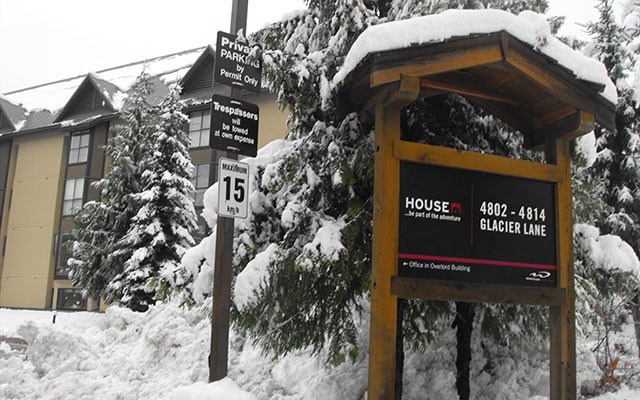Time is running out for Daniel Tellmann and his girlfriend.
Try as they might to spend a winter season in Whistler, soaking up all Canada has to offer in the snow, they may not be able to stay. They both have part-time jobs. Their working holiday visas are in good order. They have plans to take snowboard and ski lessons.
But come mid-December they have no place to stay.
"We're simply not willing to pay $1,500 a month," said the German national.
Their back-up plan if nothing pans out in the next three weeks is to begin looking for a car, look at another city... get out of town.
"It's pretty sad," said the resigned Tellmann, who has spent six weeks diligently looking for a place, after arriving in Whistler in the second week of October and deciding to stay for the season on a whim.
Tales such as Tellmann's have been frequent this season, and even became part of the election debates leading up to the vote for a new council earlier this month.
The common complaint? Rentals are scant and what few are out there are too expensive. Summer's labour shortage has turned into winter's housing crunch.
Industry insiders have a gut feeling that the rental inventory is changing in Whistler, specifically in the unrestricted, free market product (i.e. traditional suites in Whistler houses) creating pressure in the marketplace, driving up rents and leaving some out in the cold.
"I really feel strongly that this is a piece we need to be looking at," said Marla Zucht, general manager of the Whistler Housing Authority (WHA).
"It's on our radar screen as something that is changing in the unrestricted inventory.
"That trend is a concern to us."
The WHA tracks the availability of unrestricted rental units as advertised in the Pique and on Craigslist.
As of the week of Nov. 14, there are 15 units advertised. This compares to 11 at this time last year and 68 in 2011.
While the units available are roughly on par to last year, the big change is in the rents.
A one bedroom was $1,173 last year. This year it's $1,376 — the highest in the last five years. Similarly, a two bedroom is $1,812 this year compared to $1,672 last year — a big difference for those making minimum wage.
So, what may be changing in valley homes to create this pressure?
Are new second homeowners buying homes and converting the suites to the main living area? Are long-term permanent residents taking back their suites?
Are landlords removing their suites from the long-term inventory to capitalize on the quick cash in the short-term market?
Are more homeowners choosing to rent to weekend warriors over full-time renters? Are all these things playing a role, cumulatively impacting the rental market as a whole?
Consider the sheer volume of restricted housing built in the past decade — Cheakamus, Rainbow, the Lofts in Function, Fitzsimmons Walk.
Consider too that the workforce has not grown in any significant way.
"If nothing else changed, there should be more beds available versus less," said Joel Chevalier, Whistler Blackcomb's (WB) director of employee experience.
"And yet, there seems to be a housing crunch."
Since the 2010 Olympics, WB has been removing beds from its seven-building inventory — 100 beds removed out of the 1,112 beds over the last four years.
The company also used to rent 60 to 70 additional beds in the village. No longer.
Two years ago, there were almost 100 empty beds during the peak winter period. Last year, there were 50 empty beds.
This year they added 73 beds when they started to hear of the housing challenge.
"It was surprising to us when the housing market seemed to change this quickly but it apparently has, so we reacted by adding beds back in," said Chevalier.
"Based on the conversations we've had, the only thing we can think of is that there are suites that are being taken off the market."
According to the WHA, 63 per cent of Whistler's resident workforce lives in resident-restricted housing. That leaves market housing for 37 per cent of the workforce.
That leaves people like Zucht with questions: do we need to build more, or do we need to use our existing inventory better?
"It is something that we're going to keep monitoring if we can," she said.
But it may be too late for Tellmann and his girlfriend.
Whistler was just their second stop, after landing in Vancouver, on their cross-Canada adventure.
Disillusioned with his experience, his long searches on Craigslist, advertising couch surfing for $700/month, or a small room in a shared house for $1,400, Tellmann is pessimistic about Whistler's future if it cannot house the workers that keep the town running — make the food, froth the lattes, wash the streets.
"At some point Whistler will just be a spot on a map and no one will ever come here."




